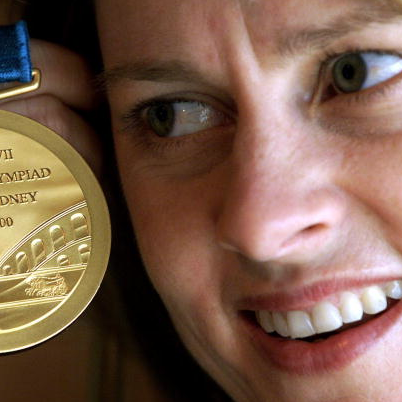Change must come at historic AOC vote
At a secret ballot this weekend, the prize position of head of the Australian Olympic Committee is up for grabs. After 27 years under the leadership of John Coates, new blood – in the form of former Olympian Danni Roche – may be about to take over.

http://gty.im/588415788
John Coates at the last Olympics, overall a disappointing event for Australia.
OPINION
By LAURENCE ROSEN
Away from the bright lights of Australia’s traditional winter codes, there’s a crucial vote looming involving all Olympic sports that will pave the way forward for some of the country’s brightest young athletes.
On May 6, each of the 40 summer and winter sports will hold a secret vote at the Australian Olympic Committee’s (AOC) Annual General Meeting for a range of new positions, with the key question being whether president John Coates will be reappointed.
Each sport receives two votes, while the remaining 14 votes of the 94-vote ballot are made up by various AOC executive members and other officials. Under the AOC constitution, all sports are equal.
The vote takes place less than a year after Australia’s disappointing Rio campaign that led to a bitter stoush between the AOC and the Australian Sports Commission (ASC) over funding.
Now, for the first time in Mr Coates’ 27-year reign, there is a challenger for his position and that stems from growing discontent at how the 66-year-old has conducted himself both in public and behind closed doors.
Mr Coates has been president of the AOC since 1981 and a member of the IOC (International Olympic Committee) since 2001. He is also chair of coordination for the Tokyo 2020 Olympic Games and plays a large role in dealing with broadcast deals for both summer and winter Olympics.
Mr Coates is in seen in the ASC as a one-man band who needs to be reined in, while former Olympian and 1996 Atlanta hockey gold medallist Danni Roche OAM is seen as the person to provide fresh blood and direction ahead of Pyeongchang 2018 and Tokyo 2020.
http://gty.im/51950718
Danni Roche has a strong sporting history.
Ms Roche, who is backed by ASC chair John Wylie, is a member of the St Kilda Football Club board and was formerly a director at Hockey Australia. She also has more than 10 years’ experience in a commercial and finance position at Telstra and is a member of the ASC board, from which she stood down when she announced her candidacy for the AOC position.
One of the major talking points of her campaign is her offer to do the job for a $100,000 consultation fee – in stark contrast to Mr Coates’ estimated $750,000 annual salary.
In a publicly available statement of her platform, Ms Roche has pledged to re-invest those salary savings in Olympic sports that have traditionally been an afterthought in Australia.
Sports such as modern pentathlon and fencing have received little to no funding over the years, but it seems Ms Roche’s challenge has already shaken things up. Modern pentathlon received $100,000 in funding as part of a $900,000 AOC bounty set aside just days after she announced her candidacy.
http://gty.im/592278344
Fiona de Jong has made claims of a bully culture in the AOC.
More controversy came when former AOC chief executive Fiona de Jong released a 12-page dossier last week detailing claims of a toxic bullying culture in Australia’s top Olympic body. Media director Mike Tancred, who was implicated, has stood down pending further investigation.
The fallout could end up being the final straw in Mr Coates’ presidency.
While Mr Coates will best be remembered for overseeing the successful Sydney 2000 Games, Australian results at summer Olympics have dipped dramatically since those highs 17 years ago.
Australia won a total of 58 medals in Sydney – representing the most by any local team in history – but every summer Olympics since has seen results go backwards. In Rio last year, Australia won 29 medals, the least since the 1992 Barcelona Olympics.
For the first time in decades, Australia is presented with a qualified, credible and viable alternative to Mr Coates as AOC president.
While the incumbent has served his post well over his near three-decade reign, Ms Roche must be elected on Saturday and become the seventh president of the Australian Olympic Committee.





